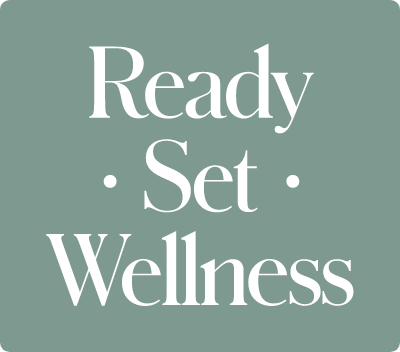Guest post by Jamie McManus, M.D., FAAFP. Chair of Medical Affairs, Health Science, & Education at Shaklee Corporation
Want to guest post? I’d love to publish your health related article.
Contact me.

Many of you have probably seen the headlines regarding multivitamins and their inability to prevent chronic disease in the past few days – the result of three studies published in the Annals of Internal Medicine.
Starting from a 30,000-foot view, the premise of these studies is the first problem: looking at the use of a multivitamin alone as a way to prevent disease. The purpose of a multivitamin is to fill in nutritional gaps and provide optimum levels of vitamins and minerals. It is well established that the vast majority of Americans fail to obtain even adequate levels of these nutrients.
Prevention of any disease is a multi-factorial process that has to include diet, weight management, and lifestyle. To expect to see disease prevention accomplished by virtue of taking a daily multivitamin is a flawed premise. So, why are these large-scale (and very expensive) studies undertaken? It is simply the model of research that scientists and physicians understand – studying a single drug to determine what effect it may have on a single disease. Studying nutrition is far more complex.
While a drug has a primary effect (usually something positive), they also have a myriad of side effects (which are usually negative and even life threatening). Every year pharmaceuticals are removed from the market because of these serious side effects. A study published in JAMA in 1998 showed that as many as 125,000 Americans die each year of properly prescribed pharmaceuticals – wow! When was the last time a vitamin was removed from the market?
Vitamins and minerals all have multiple positive functional roles to play in our bodies – which is why so many Americans pop a multi each day. People simply feel better when they take a multi because they are filling in those all too common nutrition gaps.
All three of these studies showed that multivitamins have an excellent safety profile. Well, of course they do! The only “potential harm” that continues to be mentioned every time we have a study such as this published is the slight increased risk of lung cancer in smokers who took beta carotene. My response to that is – smokers: stop smoking!
Let me quickly summarize these studies. The largest one is another report from the Physician Health Study – previous publications of data from this large government funded study did show an association of reduced cancer associated with multivitamin usage.
The next study looked at cognitive decline in physicians – who are at the upper end of the intelligence scale and pretty well nourished. Showing a significant change in cognitive decline in this population is going to take some intervention beyond a multi – as this population is most likely doing lots of the right things to protect their brain function.
The third study tried to show that higher doses of specific vitamins decrease the likelihood of a second heart attack in folks who have already had a heart attack. Hmmm. Maybe we should look at weight reduction, cholesterol, blood pressure lowering, and blood sugar management as opposed to putting the burden of prevention of a second heart attack in someone with heart disease on vitamins!
I have been recommending a multivitamin (and beyond) to my patients, and consumers in general, for my entire 30 years as a physician – and nothing in these studies changes my mind. The statistics on inadequacies in our American diet are clear – most everyone is deficient in multiple nutrients. Here at Shaklee, we have the Landmark Study, published in the journal Nutrition in 2007 that showed a nice correlation of better health with multiple supplement usage, starting with a multivitamin. We have over 100 published studies that validate the connection of nutrition and health. I urge you to continue taking your Shaklee supplements – but also, to remember the importance of eating healthfully, avoiding fast foods, and getting to a healthy weight on your journey to better health.
Be well!

ABOUT THE AUTHOR:
 Chair of Medical Affairs, Health Science, & Education
Chair of Medical Affairs, Health Science, & Education
Dr. Jamie McManus is an acclaimed author, board-certified family physician, and highly regarded educational speaker who has been featured in numerous radio and television shows. She is responsible for ensuring best practices in clinical research, scientific design, product development, and product messaging. A longtime advocate of preventative medicine, Dr. McManus is most passionate about inspiring others to take charge of their health through simple lifestyle changes and proper nutrition. In her downtime, she enjoys running, hiking, kayaking, snowshoeing, and playing with her 3-year-old granddaughter.
She doesn’t go a day without taking her Shaklee products, starting her day with a Shaklee 180™ Shake and Shaklee Vitalizer™.
Do you take vitamins every day?
Are they synthetic or all natural and organic?
Does it matter to you whether you take them or not?
Leave a comment with your opinion.
 How is it that Americans today consume an average of 610 calories a day more than they did 20 years ago—yet are still falling short in getting enough of the most critical nutrients needed for a long and healthy life? Blame it on our superbusy, fast food-packed lifestyles that drive us to make compromises of convenience, which are taking a toll on our nutritional status.
How is it that Americans today consume an average of 610 calories a day more than they did 20 years ago—yet are still falling short in getting enough of the most critical nutrients needed for a long and healthy life? Blame it on our superbusy, fast food-packed lifestyles that drive us to make compromises of convenience, which are taking a toll on our nutritional status.






















